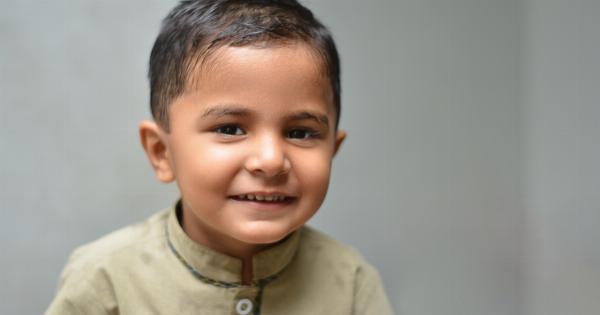As a parent, it is crucial to be aware of the various health issues that can affect your child’s well-being. One such concern is hearing loss in kids, which can have a profound impact on their development and overall quality of life.
In this article, we will explore everything you need to know about hearing loss in children, including its causes, signs, prevention, and treatment options.
Understanding Hearing Loss
Hearing loss refers to a partial or complete inability to hear sounds in one or both ears. While it is commonly associated with aging, hearing loss can also affect children, and its prevalence in this population is on the rise.
It is estimated that approximately 1 to 3 out of every 1,000 children are born with some degree of hearing loss.
Causes of Hearing Loss in Children
Hearing loss in children can have a variety of causes, including:.
- Genetic Factors: Certain genetic disorders can contribute to hearing loss in children. These may be present at birth or develop later in life.
- Infections: Infections such as meningitis, measles, mumps, and ear infections can lead to hearing loss if left untreated or improperly managed.
- Exposure to Loud Noises: Prolonged exposure to loud noises, such as excessively loud music or machinery, can damage the delicate structures of the inner ear, leading to hearing loss.
- Birth Complications: Children who experience complications during birth, such as prematurity, low birth weight, or lack of oxygen, are at a higher risk of developing hearing loss.
Signs of Hearing Loss in Children
Identifying hearing loss in children can be challenging, especially in young infants or toddlers who are unable to communicate verbally. However, there are several signs that parents can look out for:.
- Lack of response to sounds or voices
- Delayed or unclear speech
- Inattentiveness or difficulty following instructions
- Frequent requests to increase the volume of electronic devices
- Speaking loudly or shouting
Diagnosing Hearing Loss in Children
If you suspect that your child may have hearing loss, it is important to seek a professional evaluation from an audiologist. The audiologist will conduct a comprehensive assessment, which may include:.
- Hearing tests: These tests measure your child’s ability to hear different tones and frequencies.
- Speech recognition tests: These evaluate your child’s ability to understand and repeat words.
- Imaging tests: In certain cases, imaging tests like CT scans or MRIs may be required to identify any structural abnormalities in the ear.
Prevention of Hearing Loss in Children
While not all types of hearing loss can be prevented, there are steps parents can take to reduce the risk:.
- Immunize your child against diseases that can cause hearing loss, such as measles and meningitis.
- Protect your child’s ears from loud noises by using earplugs or earmuffs in noisy environments.
- Monitor your child’s use of personal listening devices and set volume limits to prevent damage to their ears.
- Ensure prompt and appropriate treatment for ear infections to prevent complications.
Treatment Options for Hearing Loss in Children
The appropriate treatment for hearing loss in children depends on the underlying cause and severity of the condition:.
- Hearing Aids: These electronic devices are designed to amplify sounds, making them louder and clearer for children with hearing loss.
- Cochlear Implants: For children with severe to profound hearing loss who do not benefit from hearing aids, cochlear implants may be recommended. These implants bypass damaged parts of the ear to directly stimulate the auditory nerve.
- Assistive Listening Devices: These devices, such as frequency modulation (FM) systems or sound-field systems, can be used to enhance sound transmission in classrooms or other listening environments.
- Speech Therapy: Many children with hearing loss benefit from speech therapy, which helps them improve their speech and language skills.
Supporting Children with Hearing Loss
It is vital for parents to provide appropriate support to children with hearing loss. Some ways to support your child’s communication and development include:.
- Creating a quiet and conducive environment for listening and communication
- Using visual aids, gestures, and facial expressions to supplement verbal communication
- Encouraging open and honest conversations about their hearing loss
- Working closely with teachers and educational professionals to ensure appropriate accommodations in school
Conclusion
Hearing loss in children can significantly impact their language skills, social interactions, and overall development. As a parent, being aware of the causes, signs, and available treatment options for hearing loss is crucial.
By taking preventive measures and seeking appropriate interventions, you can support your child’s communication abilities and help them thrive.






























